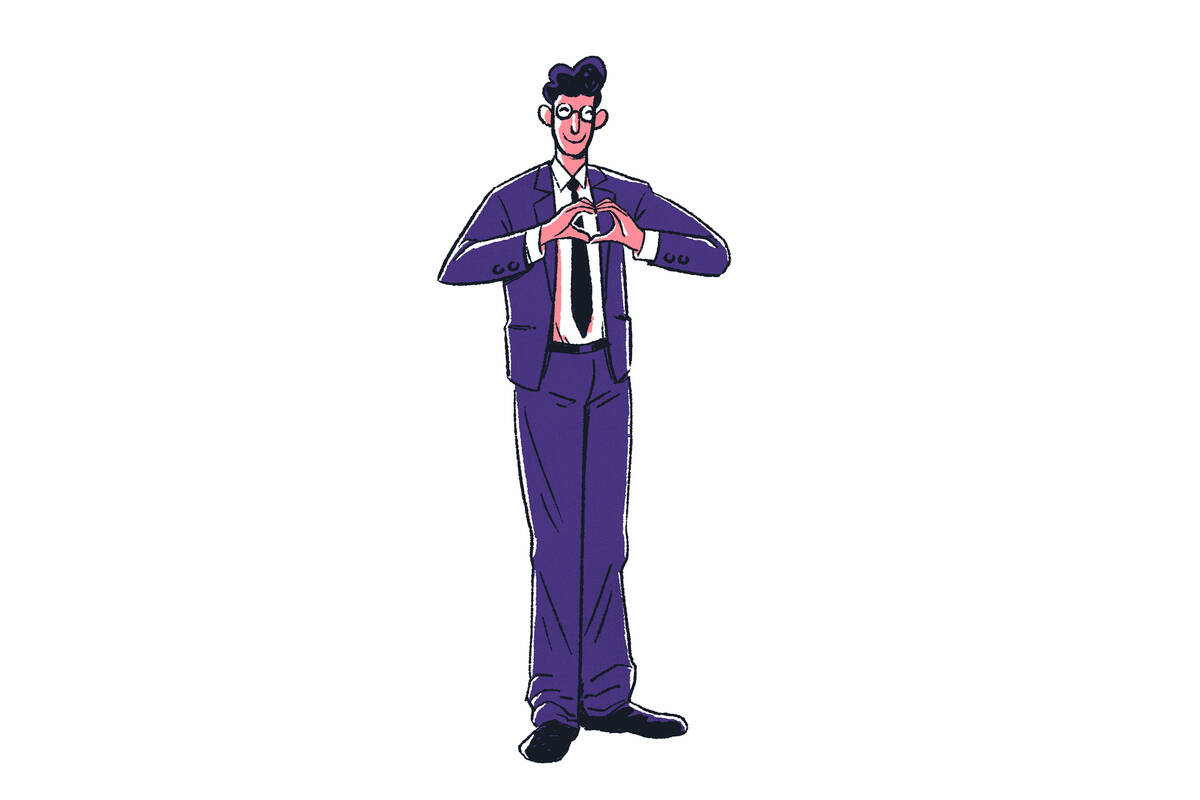Leadership Oct 29, 2025
Podcast: Managing Layoffs without Compromising Your Morals
There’s no “correct” approach to laying people off, but on this episode of The Insightful Leader, we discuss how you can maintain your integrity through the process.

Michael Meier
Like it or not, making layoffs is a skill.
“ They are just a predictable part of business and they are an important part of building business literacy,” says Brooke Vuckovic, a clinical professor of management and organizations at Kellogg.
But middle managers, especially those early in their careers, are still caught off guard when it comes time to make them.
On this episode of The Insightful Leader: a guide to working through these, and other moral dilemmas, without compromising your integrity.
Podcast Transcript
Laura PAVIN: I want to take you back to the year 2000, when you had to memorize phone numbers, your news came from a paper, and the internet was going to make everyone rich.
Brooke VUCKOVIC: Companies were growing gangbusters. We had sushi ordered in every day. We were super well funded, everyone was gonna become a millionaire.
PAVIN: That’s Brooke Vuckovic, a professor here at Kellogg. Back then she was a young middle manager at one of the numerous dot-com companies that were thriving in the late 90s. Investor funds were pouring into internet companies and—at least for a while—it seemed like the good times would never stop.
VUCKOVIC: And then the crash came.
PAVIN: This was the infamous dot-com crash, where bubbles burst and startups imploded, funding dried up, and many companies, like where Vuckovic worked, were faced with decisions about layoffs. Decisions that Vuckovic was suddenly expected to make.
VUCKOVIC: I was an individual in my late twenties who, like many people in startups, had been given way more responsibility than my experience warranted. And yet I was being asked to make those decisions.
PAVIN: Choosing people to lay off is never something that a manager looks forward to, but what made this particular situation worse was that many of these potential layoffs were close personal friends. How is anyone supposed to make a decision like that?
VUCKOVIC: You want to do the right thing and you have no idea what the right thing is to do. So one set of values is colliding against another.
…
PAVIN: This is The Insightful Leader, I’m Laura Pavin.
This episode: we’re talkin’ layoffs. To be clear, this isn’t an HR playbook on how organizations should think about them at a high level. It’s focused, instead, on the individual middle manager making these choices for the first time. They’re among the most paralyzing deliberations they’ll face early on in their careers, pitting their commitment to the company against their commitment to their teams.
Knowing how to navigate that is crucial.
VUCKOVIC: They are just a predictable part of business, and they are an important part of building business literacy.
PAVIN: Today, Vuckovic helps us build that literacy.
She says that there are some questions middle managers can ask themselves to get a little more clarity on why the layoffs are happening, who they are in all of this, and how a decision might be interpreted by other people. Together, the questions will help them make a decision they can stand by, in the end. Though it will likely still hurt.
We’ll hear about that—and how Vuckovic handled the layoffs at the startup. Next.
…
PAVIN: Delivering the life-altering news that you’re laying someone off is hard. Justifying the layoff itself is harder. That’s the part we’ll be focusing on today. But before we get into any tips, let’s set the stage a little with an example—a common situation middle managers might need these tips for.
VUCKOVIC: So let me give you an example that is a classic one. A senior manager is told—let’s say the senior manager, we’re gonna call her Monica—Monica is told, “you need to identify someone on your team to cut because we have budgetary constraints, and I want you to give them a poor performance evaluation for doing so. I’m not asking you to fabricate anything, I’m just asking you to be more discerning. Monica, I know you have a high-performing team, but really of these high performers, is there someone who’s a little less high-performing? Please. Thank you. Get it done.”
PAVIN: Monica is pretty uncomfortable at this point. Finding reasons to label someone a “low performer” feels sneaky and unfair and not in the spirit of a true layoff or position elimination. But let’s say she does what she’s told, looks around at her team, and identifies a person who has been slipping a little bit—but for no fault of their own.
VUCKOVIC: Let’s say they were helping an elderly parent, and so they’ve been absent, and the team has really coalesced around them and has been lifting and raising them. This individual has also been with the organization for five years and has been a stellar performer up until now. So Monica’s faced with this decision: alright, if I were being “discerning,” what my person’s asking me to do, I could probably highlight that this individual is not performing a hundred percent.
PAVIN: Frankly, things are feeling pretty unethical to Monica at this point. And she isn’t sure what to do. Now is a good time to pause, Vuckovic says. There are some questions that Monica, or anyone in a morally sticky situation like this, can ask themselves before they act. Questions that actually form the backbone of most ethical decision-making frameworks and models. And they boil down three different categories: clarifying, identity, and perspective-taking.
Let’s start with the clarifying.
VUCKOVIC: So you first have clarifying questions, which are really, what are you dealing with? What are your options? What are the costs of those options? Because, again, a moral dilemma ... there are always gonna be costs. And it’s simply using that moral imagination to think of, “what are my options here?”
PAVIN: The point of these clarifying questions are intended to create a map for you—a map to help you trace the paths you’ve been given to reach your goal and to see if there’s another path there that hasn’t yet been identified.
Next are the identity questions.
VUCKOVIC: Who am I? What do I stand for? What are my obligations in the world, in this organization, to my family, to the community? So you have these identity sets of questions that you need to ask.
PAVIN: Identity questions are intended to consider yourself as a factor in this decision. What do you feel you owe to you, your team, your company, your own integrity? Do you want to feel like the kind of person who is trustworthy but fair? Who do you want to be in all of this? Those are identity questions.
And then, finally, you’ll need to ask yourself some questions about perspective.
VUCKOVIC: Perspective-granting questions, which means: How might my actions be interpreted by someone on the other side? What if this action is seen as symbolic and is misinterpreted? How might the other side describe the problem that I’m facing and dealing with?
PAVIN: With perspective questions, simply, the idea is to help you see your decision through the lens of different parties who might be affected by it. Seeing how your decision might land through the eyes of other people.
Okay, so we’ve got our clarifying, identity, and perspective-taking questions on hand. Back to Monica, who, again, has been asked to give a poor performance review to justify a layoff.
VUCKOVIC: The common tendency is that people will quickly reframe what they’re being asked as an either-or: I’m asked to obey or resist. it’s not a question of obey or resist, it’s a question of how can I manage this uncomfortable situation in a way that at the end I feel proud of and I can stand behind.
PAVIN: Vuckovic says the situation might not be as black and white as it seems. There might be another way Monica can slice this that her boss isn’t seeing. That’s where those clarifying questions come in.
VUCKOVIC: So, for example, Monica might start to think about, “What are my real options here? What is the real objective? The objective is to reduce spend. So what are some of my options for doing that?” She might think of, “is there a third way to manage these budgetary constraints that we have around voluntary departures? Deferring the decision, talking to other managers about how they’re handling it, thinking about it as a reorganization of resources and how they do it?”
PAVIN: Here, it’s incumbent on Monica to get a wholistic picture of the situation, one that might afford her some flexibility on the kind of decision she has to make.
Once she has a better sense of that, she needs to look within. That’s where those identity questions come in.
VUCKOVIC: So who am I in this? That might be, what do I owe to my team? To the company? To my own integrity? What version of myself can I live with given this conversation and these difficult decisions?
PAVIN: To which parties does Monica feel she owes something in all of this? And how does she square that with the responsibilities of her job title? What will allow Monica to think, “I truly did the best I could” at the end of the day?
Finally, Vuckovic says, Monica must consider that third set of questions about everyone else’s perspectives.
VUCKOVIC: How would this look to my team? So for example, I wanna be known as someone who can make hard decisions, but is always fair and forthright as I make them. What are the stories that they’re gonna tell about me? About the organization? If I’m suddenly putting someone who is vulnerable down for poor performance because they’ve had a blip in their performance for the past six months after being a stellar performer for five years, am I comfortable with that?
…
PAVIN: For Monica, figuring out what her options are, considering her allegiances, and taking the perspectives of other parties ... it’s not going to make her feel good about whatever decision she ends up making. But what it should do is help her feel like she upheld the values that mattered to her and that she was ultimately as fair as she could possibly be.
So, what does hypothetical Monica end up doing? Let’s say she asks herself all of these questions and ultimately decides, you know what? No. I’m not going to unjustly label someone as a bad performer just so we can lay them off.
VUCKOVIC: Let’s say Monica goes back and says, “I’m not willing to represent this person as having poor performance.” Then maybe the boss says, “okay, then I will do your division if you’re not up to the task.” So sometimes there’ll be a little dig. “If you’re not up to this task, then I will make the decision.”
PAVIN: Vuckovic says this kind of situation happens. This kind of thinly veiled guilt trip from your boss that comes at a moment when you’re already feeling pretty vulnerable. And it can trip you up, make you doubt your decision. But if you’ve taken the time to reflect on all of those important questions Vuckovic’s laid out, hopefully you can accept being overridden.
VUCKOVIC: You have to put forth what you want so you can be proud of how you responded to it, even if ultimately that’s not what’s moved for.
PAVIN: The point is that this is all deeply personal. And you have to decide what allows you to sleep at night, in the end.
That’s why Vuckovic didn’t elaborate on what Monica ended up doing in that situation. Because it’s besides the point. What allows Monica to sleep at night might be different for you. You need to put in the work to decide what that is for you.
…
PAVIN: When Vuckovic was telling me all this, I kept thinking about how thankless it is to be a middle manager. And it made me wonder if doing the moral thing often came at the cost of their own professional accomplishments.
Vuckovic said it’s a common thought.
VUCKOVIC: This is a real tension and it’s one I hear from students all the time. I wanna be clear-sighted on one thing, which is sometimes moral decisions and sometimes the most important moral decisions will come at a great cost for you, period. Full stop. And that’s where you want to have gone through some of these questions to make sure that you are really okay with that potentially happening, that you believe so strongly in what you are doing, that you understand there will be fallout.
PAVIN: It’s all kind of par for the course with middle management. But rather than feel helpless, Vuckovic says it can help to look for inspiration from others.
VUCKOVIC: I often encourage individuals to look in their company for positive deviance, for people who do the right thing, who are very careful and shrewd and thoughtful and savvy, and also ethical, because they often are the people that are the most imaginative. They slow down enough to take a beat and to not go with the first easy, lazy, fast answer because that almost always involves more compromise than is necessary. They are as savvy and politically equipped as anyone else in their organization to put forth their argument for why.
PAVIN: Studying those masters of positive deviance can further equip you with the tools you need to find creative solutions to any moral dilemma you come up against, let alone layoffs.
VUCKOVIC: How do you make the case for what you believe is the right thing to do? How do you understand your audience with such a depth and have the organization and the politics mapped in such a way that you understand how to build coalitions, that you understand how to quietly gather the data you need, present a solution that you want to advocate strongly for, and move forward?
…
PAVIN: Let us return to the dilemma a young Vuckovic found herself in at the start of the show. When she was a young manager at the startup. The startup that asked her to make layoffs. Remember that many of the folks who would be on the chopping block were close personal friends, and she had never done anything like this before. So, what did she do? She ended up finding someone with more experience who could teach her the process.
VUCKOVIC: He had done this many, many times and had advised people many, many times. And what he did was help me to realize that I needed to focus on the process and the criteria of how I was gonna manage these layoffs versus looking at the individual people and their job roles first, which it was my instinct. Who do I want to keep? Who do I need to keep in order to keep functioning?
PAVIN: Instead of getting caught up in the emotions of the situation, Vuckovic got clarity on her options. She figured out who she wanted be and how she wanted to be seen at the end of all of it, and created a system for fairly and objectively evaluating who could be cut from her team.
Of course, the system didn’t make the decision any less difficult.
VUCKOVIC: I ended up laying off people that were among my dearest friends, and that is not easy for someone who is that age and needing to make those decisions ... and figuring out the long-term survival of the organization and what hits I would need to take personally ... was part of making that decision as a manager, versus as a friend. And that’s what was called for in that time.
So if I look back at that situation, I stand by the way in which I made the decision, thankful to this individual who helped me. And the cost was that my friends lost their jobs, and my friends lost their jobs in a time when a lot of people were losing their jobs.
So there were real ... there were costs there that were high for individuals.
PAVIN: She did end up giving her friends a heads-up about the layoffs, which went against company policy, but she felt like she could live with that. Like it was the least she could do for her friends, who were getting laid off.
VUCKOVIC: We’re still friends to this day. They’ve gone on to have wonderful careers. I mean, I love wrapping it up in a bow in that way, but the point is not the bow because it easily could have ruptured those relationships irreparably.
I had to be able to live with the fact that I did the best that I could do, given the circumstances that I was dealt. And I had to be willing to face those consequences.
…
PAVIN: When you’re faced with these moral dilemmas, there’s rarely a step-by-step guide that will bring you to the correct answer. In fact, a “correct” answer isn’t really the way to think about these kinds of decisions. The best you can do is to have a framework. You need questions you can ask to get clear on the situation, to figure out what values matter to you, and to understand how you want to be seen as a leader. Even then, the choices you make might come at a significant cost. But hopefully, if you took the time to get clarity, you can at least lean on keeping your integrity.
[CREDITS]
PAVIN: This episode of The Insightful Leader was produced and mixed by Andrew Meriwether. It was produced and edited by Laura Pavin, Rob Mitchum, Fred Schmalz, Abraham Kim, Maja Kos, and Blake Goble. Special thanks to Brooke Vuckovic. Want more The Insightful Leader episodes? You can find us on iTunes, Spotify, or our website: insight.kellogg.northwestern.edu. We’ll be back in a couple weeks with another episode of The Insightful Leader Podcast.


